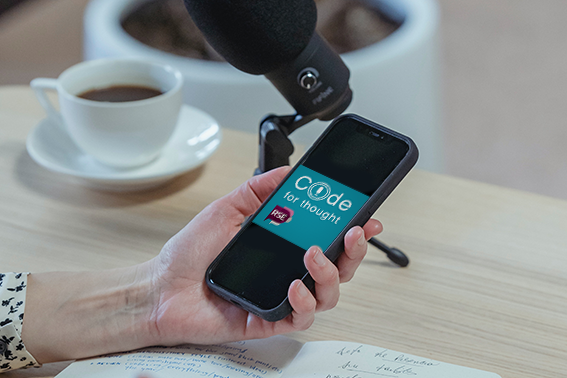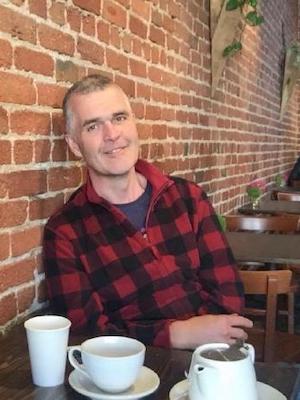Two Years of Code For Thought
Posted on 26 January 2023
Two Years of Code For Thought
 Original photo by George Milton
Original photo by George MiltonBy SSI Fellow and Code For Thought host Peter Schmidt.
Hard to believe it is already two years: on 12 January 2021, the first episode of Code for Thought titled ‘And so it begins…’ went live.
And begin it did: two years later, Selina, Jacalyn and I have published well over 50 episodes. We covered a wide range of different subjects around the theme of research and software engineering, always hoping we can reach an audience that will find it interesting and maybe even helpful.
This is by no means a foregone conclusion. As you may know, the podcasting world has exploded over recent years including hugely successful shows and tons of new ones being added every day. To find a place in this ever-growing jungle is - to put it mildly - a challenge.
But seeing that Code for Thought is being followed and listened to gives us confidence that we have found this space. Not a big one. But one that can help us bring more content to you the listeners for 2023 and beyond.
Why are we doing this you may wonder?
For me personally, this goes back to the Software Sustainability Institute Fellowship that I applied for (and received) in late 2021: Building and Supporting the RSE Community.
And yes, I chose the capital letters deliberately.
Research Software Engineering has come a long way since 2012. And rightly so, as software engineering is an indispensable part of research and science.
And yet, 10 years later, we still find ourselves struggling with the role and what it means. This became apparent at the latest RSE conference in Newcastle (UK, 2022), where the subject of who we are and what we do was raised in more than one session. On top of that, funding software engineering in research remains a challenge. And finally, let’s not forget that there are still plenty of engineers out there living with ‘imposter syndrome’ because their official role doesn’t match what they actually do.
In short: we are not done, yet!
At the same time, none of what we achieved to date would have happened without an active and supportive RSE community. Due to the persistent efforts of so many of us, a growing number of universities and research centres fund and support research software engineers. As we are being noticed and recognised, the demand for RSEs is growing. In the three years I have been with UCL, our team size more than doubled. A trend I can see in other universities and countries.
But communities cannot run on autopilot. And as the community grows so does the effort of ‘keeping it together’. In my SSI fellowship application, I made the case that podcasting can help to build and support this community. Two years later, my conviction still holds, even more so.
With that in mind, the plan for 2023 and beyond is to continue with more content and more stories from the world of research and software engineering.
But this community podcast shouldn’t be a one-way street. We want to hear from you! What are your ideas? What stories do you want to listen to? Or simply let us know how we’re doing.
Getting in touch with us is easy: whether on RSE Slack, Mastodon @code4thought@fosstodon.org or good, old-fashioned email code4thought@proton.me (Alas, no longer Twitter, but that is a whole different news item).
You can also simply leave a review or star(s) on the podcast apps you’re using, be that Apple, Spotify, Google etc - and lately, YouTube.
Finally, my heartfelt thanks to all those who made this podcast possible: to Selina Aragon and Jacalyn Laird who joined me as co-hosts, to Claire Wyatt, Simon Hettrick, the lovely communications teams at the SSI and the Society for RSE in the UK for their continuous support, suggestions, and immensely valuable input, and to UCL for enabling me to do this work.
And finally, to all the people we had the pleasure and privilege of talking to and, of course, you the listeners for tuning in.

